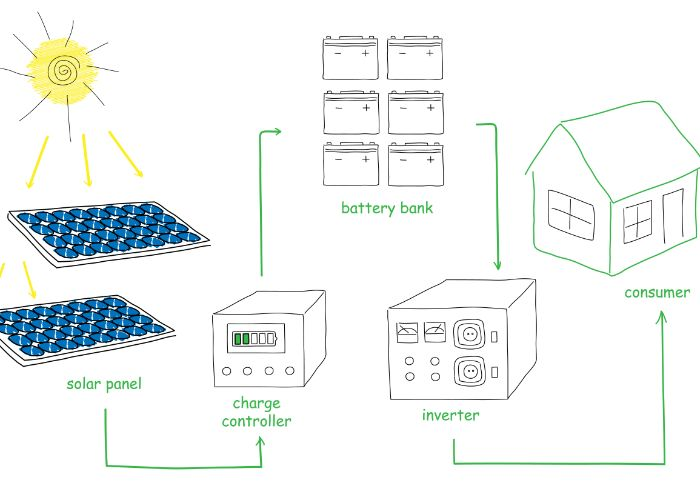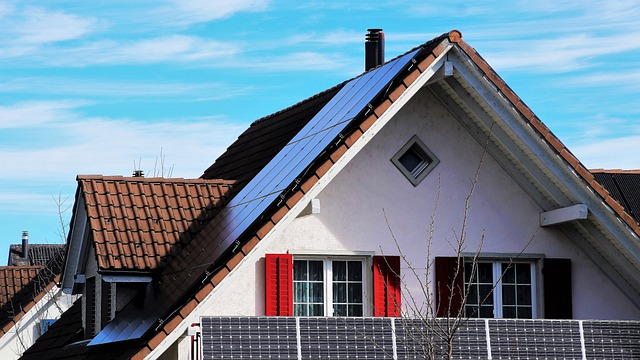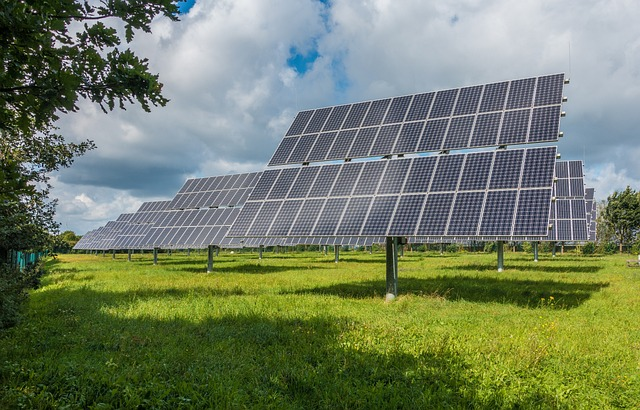Property owners often wonder, how long does a solar battery last? This is a fair question for anyone considering a solar array! After all, if you invest in a solar battery, you want it to last as long as possible. You also want it to supply power to your property effectively between recharging.
As with any equipment you might buy for your property, solar battery lifespans vary according to the manufacturer. Your solar installation contractor can also advise on your chosen battery quality. In the meantime, note some general information about solar battery effectiveness. This can help you know what to expect from your solar array.
If you’re wondering how long a solar battery provides power before needing recharging, the answer is typically 1-3 days. Of course, this depends on battery size and quality and your property’s energy usage. When your system is depleted, it'll typically take 5-8 hours to charge the solar battery.
However, the good news is that solar panels collect and convert sunlight constantly. So, they’re always recharging that battery as long as they have sunlight to collect. Stormy or cloudy weather reduces sunlight collected by panels. Consequently, your solar batteries might run out of power sooner during inclement weather than during sunny days.
Also, many property owners invest in more than one solar battery for their solar power system. A battery bank means having more stored energy, ready for use when needed. Also, higher-quality batteries might collect and store more energy than their cheaper counterparts. With this in mind, invest in the highest quality battery you can afford for your property! This will ensure maximum power during inclement weather.

Most solar batteries last between 5 and 15 years before they need replacing. After that time, wear and tear wear down wires and other materials. In turn, batteries won’t hold power very quickly, making them virtually ineffective.
Additionally, you might note some added factors that affect solar battery lifespan. First, lithium-ion batteries usually work more effectively and last longer than lead batteries. Second, repeated battery cycles create more wear and tear on a battery, lowering its lifespan.
Property owners might wonder what battery cycles mean, perhaps assuming that solar batteries always power their property. However, most properties use net metering for their solar array. This refers to having a property attached to a local utility company, which provides needed power. Then, the local utility company credits you for the power produced by those solar panels.
Solar battery temperatures also affect its lifespan. High heat levels stress battery parts and even drain them of power. You must store your batteries in a cool, dry place, such as a garage or basement.
Additionally, property owners should note a solar battery’s warranty before purchasing. Higher-quality batteries will have more extended warranties, ensuring their quality. Lastly, some might require maintenance over the years, including cleaning. Regular maintenance ensures those batteries last as long as possible.
The two most popular solar batteries are lithium-ion and lead-acid batteries. Unfortunately, both have their advantages and disadvantages, so it can be not easy to decide which type is best.
Lithium-ion solar batteries are a newer technology with increasing popularity.
Lead acid batteries are the oldest type of battery technology available. This type is still famous for solar battery storage, but its popularity is fading.
Solar battery watt-hours are the amount of power in watt-hours that a solar battery can store. This is measured by the wattage of the solar battery and the number of hours it can hold the power. This is important for those who want to use solar energy storage to power their homes or businesses.
For example, a 10-watt solar battery can store up to 100-watt hours of energy. This means it can provide up to 10 hours of power at full capacity. A 20-watt solar battery, on the other hand, can store up to 400-watt hours of energy, providing up to 20 hours of power at its total capacity.
Knowing how many watt-hours a solar battery can store is essential when considering how much solar energy one needs. When choosing a solar battery, it is also important to consider as not all solar batteries have the same wattage or storage capacity.
This is also important for backup power if you experience a power outage during a storm.

Whether or not you invest in a battery with a solar energy system depends on your needs. Most properties utilize net metering, as mentioned above. This process keeps your property connected to a local utility company, which provides your property with needed electricity. You are then credited for solar power produced by your panels.
However, utility companies can suffer blackouts, brownouts, downed power lines, and other disruptions. This is where a solar battery becomes very useful! During such disruptions, your property starts drawing on battery-stored power, similar to using a gas-powered generator. As a result, you can enjoy uninterrupted power even during outages.
On the other hand, investing in solar batteries means added cost for your solar array. Also, you’ll need to store those batteries somewhere secure and out of direct sunlight! If you’re still unsure they’re right for you, talk to a solar installer. They can explain their output and installation costs. In turn, you can make an informed decision about choosing batteries for your solar power system.
Solar panels and batteries can power an entire house, provided you buy enough panels and batteries to meet your power needs. Your electrical consumption depends on how many panels and batteries you’ll require to go off the grid. Smaller cottage homes or vacation cabins need far less power than traditional family homes, with large appliances and electronics.
Also, some municipalities require homes to stay connected to the grid, even with solar. However, the more panels and batteries you have, the less city-supplied power you need. Decreased power bills are one reason many homeowners choose solar power! Homeowners often save thousands, if not tens of thousands of dollars, over the lifetime of solar panel ownership.

Many solar power array owners would say that solar is worth it! Solar power produces clean energy without resultant fumes or pollutants. Investing in a solar array also means reduced electricity bills year-round. Also, a solar array can increase property values by 4%.
Additionally, solar panels often protect roof materials from damage due to inclement weather and sun exposure. Your roof might then last longer with a solar panel installation! Moreover, solar installations and recycling create local jobs. Investing in solar power for your property also means encouraging your neighbors to do the same.
Alliance Solar is happy to help answer your questions about battery storage. We use Generac and Tesla batteries for residential solar installations. Hopefully, you found this information informative and helpful. Call our solar panel installation contractors if you’re ready to explore clean, green solar for your property. We offer free consultations and no-obligation price quotes. Additionally, we’re happy to answer your questions about solar power and its components. We also endeavor to find all financial incentives for which you’re eligible. To find out more, fill out our contact form or call us.

